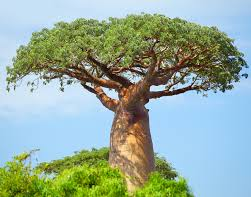Securing the History of Self: What of Historical Dialogue?
- By kwende ukaidi
- •
- 29 Oct, 2024
- •
Celebrating the Great Afrikan History Continuum

For Afrikan souls to hold conversation of their history is naturally an empowering endeavour. In this, the Afrikan can exchange information about their immensely bountiful self-determined experiences and (amongst much else) highlight great achievements, draw lessons and engage in meaningful analysis.
Yet, in a state of interruption and disruption Afrikan history and the natural interconnectedness that it has with its people can be destructively set upon by others the mean the Afrikan ill. What would be wholesome and progressive historical dialogue to inform Afrikan life’s betterment may become subject to derailment via ill-vices such as miseducation and misinformation.
According to a contemporary mainstream source, the term historical dialogue attracts the following detail:
“Historical dialogue makes visible the causes and consequences of disputed histories, acknowledges victims, and involves a wide-range of experts- academics, activists, victims, officials, and affected communities-in an effort to create new paths for moving a society away from conflict”.
In this account much of negative aspects of engagement with historical dialogue is highlighted. Some of these aspects can be discussed here in relation to the recent Afrikan experience. For the Afrikan in a state of interruption and disruption:
Disputed histories may be an imposition of divide and rule stratagem. Others that mean the Afrikan ill may concoct, push and peddle a barrage of pseudo-historical content to induce, inflame and amplify disputed histories between susceptible Afrikan souls. This may be especially potent between Afrikan souls in different geographical locations whereby (for example) Afrikans in the Islands could be pitted against Afrikans in the Americas and both pitted against Afrikans in Afrikan on the basis of conflicting pseudo-historical content. Further, such activity may also lead to the concoction and pushing of pseudo-identities that attempt to deny the reality of Afrikanness and further fuel dispute.
Victimhood may appear to be the only experience Afrikan souls have as a ‘history’ because attention in only given to the disruptive state itself. There is no doubt that the Afrikan has been victim to terrible impositions in recent centuries. Yet, Afrikan history goes way beyond contemporary conditions. It is from their whole and extensive history that Afrikan souls can be empowered to realise their natural state of optimal flourishing prior to disruption.
‘Experts’ on Afrikan history put forth by others, may be bent on peddling anti-Afrikan propaganda and grotesque falsification of the Afrikan experience. Blended with mention of historical figures and interspersed with a select sample of facts to facilitate ‘validity’, miseducation can be bolstered with a damaging process of ill-versioning.
The aim is not to provide fullest comprehensive detailing here, but to provide some level of insight on the negative aspects of the sourced account in relation to Afrikan life. It is for the Afrikan to ‘create new paths for moving Afrikan society away from conflict’. Such self-determined activity requires learning and development also determined by Afrikan souls themselves. This primary people of creation, whether located here, there or elsewhere, can restore their self-knowingness, ascend in rightful order and realise their fullest flourishing. After all, civilisation is not of happenstance.
Afrikan Historia Msimu is an observance period for the duration of the tenth month of the year (so-called October). This is a special time for learning, growth and development of the Afrikan experience in the world. It is a time of spiritual and cultural elevation as Afrikan history is restored to fabric of life in the living knowingness of the then, the now and tomorrow. Great ones of the Afrikan journey are highlighted and the symbols relevant to the time invigorate life in the imperative onward flow of global Afrikan ascendancy. This wonderful observance is a part of the cultural calendar of the Universal Royal Afrikan Nation (URAN).
The Universal Royal Afrikan Nation (URAN) is an Afrikan-centred spiritual and cultural mission for ascendancy that embodies living spiritually and culturally rooted life. To find out more about URAN and its spiritual-cultural mission for liberty and nationhood click here. The exquisite URAN pendant can be obtained online by clicking here.
In his capacity as an Afrikan-centred spiritual cultural practitioner this author is available for further learning in this regard and also for the carrying out of ceremonies such as naming and name reclamation. For details please click here.
Afrikan World Studies programmes are important forms of study in understanding the Afrikan experience. There are a range of subjects covered on these programmes including History, Creative Production, Psychology and Religion. To find out more about these learning programmes please click here. For the video promo for these learning programmes click here.
At nominal cost, also consider acquisition of an a4 laminate poster of articulations by this author when visiting the Yemanja-O establishment to enrol, consult, learn, gather or otherwise.
Also, visit www.u-ran.org for links to Afrikan liberation Love radio programme on Universal Royal Afrikan Radio online.
